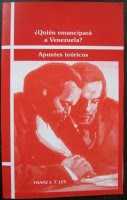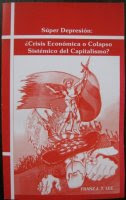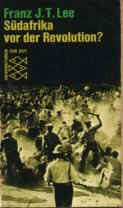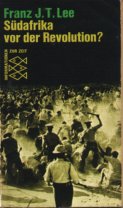Venezuela: Philosophic historic glimpses of a possible Fifth International
By: Franz J. T. Lee
The darkness of the fleeting moment.
Nobody really lives in the here and now.
Thinking means venturing beyond.
The cat falls onto its four paws; who has
never learned to think falls into eternal yesterday.
(Anticipatory flashes from the Marxist,
By: Franz J. T. Lee
The darkness of the fleeting moment.
Nobody really lives in the here and now.
Thinking means venturing beyond.
The cat falls onto its four paws; who has
never learned to think falls into eternal yesterday.
(Anticipatory flashes from the Marxist,
internationalist, philosophy of hope of Ernst Bloch.)
Many comrades are excited about the foundation of a Fifth International in 2010. Others, like Martha Harnecker, are warning that a conditio sine qua non for such a gigantic step is the creation of a 'new left culture', more precisely, of excellent Marxist praxis and theory, a global tradition of scientific and philosophic socialism, free of bureaucracy, elitism, sectarianism, Stalinism, revisionism and reformism. We need a historic, international, proletarian class consciousness and emancipatory praxis.
A New Workers' International in the epoch of globalization has to recognize all previous Marxist Internationals, to study them, to venture beyond them. This is a very serious emancipatory endeavor. All sorts of historic experiments are warning us to be very careful. We had already a "Two and Half International", also many calls for a "Fifth International". For example, the Argentine Trotskyist Liborio Justo had called for a Fifth International already in 1941. Some current existing Trotskyite groups have founded their own Fifth International already. Furthermore, we had and still have Bandung, the Socialist International, the Non-Aligned movements, etc.
Global terrorism will react against us with all its brutality, by means of its arsenals of sophisticated arms of mass destruction. Internationalism is part and parcel of one's own life process. We live the international, we are the International.
For a change, in this special case, allow me to be personal, to refer to some experiences and lessons of my own political biography, to my international struggle against exploitation, domination, apartheid and fascism, to verify what we just stated.
Between 1962 and 1965, as a philosophy student at the University of Tuebingen, Germany, I became acquainted with genuine Marxist praxis and theory. I attended the Advanced Philosophy Seminar of Ernst Bloch. Like the other students, to obtain grades, I had to present various papers on Marxist Praxis and Theory, the Concept Anticipation of the Principle of Hope and on the category Possibility. Luckily for me, for the continuation of my scholarship, my short papers and expositions were evaluated by Bloch as excellent endeavors.
Well, ever since, it was the genesis of my militant optimism and optimistic militancy, of socialism, that guided me for nearly half a century already. Of course, it is very difficult to understand Bloch; he himself gave us the key towards this venturing beyond: to understand your teacher implies to surpass her or him.
What fascinated me was his stringent, Kantian and Hegelian dialectical logic, the scientific incision and philosophic precision of Bloch's concepts and categories: praxis, theory. ideology, religion, revolution, utopia, matter, possibility, novum, totum, experimentum, ... Of course, as Bloch underlined, one thing is to be a brilliant, erudite teacher of philosophy, another matter is to be a philosopher, who per definitionem is an emancipator par excellence. He did not fail to identify himself by stating that nowadays, in the epoch of globalization, a philosopher could only be a Marxist, and that a Marxist could only be a philosopher. Bloch defended the revolution in South Africa, in Chile and elsewhere.
In our anti-apartheid struggle, in the sixties, I became acquainted with the Fourth International and collaborated with some of the then still living secretaries and close collaboraters of Trotsky ... like Joseph Hansen, Ernest Mandel, Pierre Frank, George Novack and James P. Cannon. Our fight against apartheid they supported with the organization of international campaigns, publications and the collection of funds in Europe, Canada and the USA.
I discovered a long tradition of Marxism and internationalism in South Africa, even direct contacts which we had with Trotsky, and that a Fourth International organization was founded already as early as 1934 in South Africa.
Let us look at this particular contribution of South African Marxism to internationalism a little closer to see the magnitude and responsibility to form a New International.
As we know, after Stalin's victory over the 'Left Opposition' and Trotsky's banishment from Russia in 1929 the Communist parties in the various countries expelled the 'Trotskyites' from their ranks. In 1930 the Trotskyites thus excluded from the 'South African Communist Party' (SACP) founded the 'Lenin Club'. Before long two different political tendencies, represented by the Marxist leaders Bullac and Averbuch, emerged in the 'Lenin Club'. They appealed to Trotsky in an attempt to try to resolve their theoretical differences with regard to the South African Revolution. Trotsky replied to the theses of the 'minority faction' of Bullac.
Of relevance for us is that Trotsky's 'Letter to South Africa', dated April 20, 1933, touched off a heated discussion among South Africa's Socialist groupings. 1) The problem of the international workers’ movement also came to be drawn into this discussion. A critical assessment of the Second and Third International took shape. Thus the 'Lenin Club' on the 1st of May, 1934, issued a pamphlet 2) calling for the foundation of a Fourth International. It stated:
"...as there is no longer room for the rotting Second International, and no longer hope for the resurrection of the Third, we must start a new.
We shall start, richer from the experience of the past, to build a new Revolutionary International and a new Revolutionary Workers Party, a party which will be true to the best traditions of Marx and Lenin and their achievement in the October Revolution ..." 3)
When soon after, the 'Lenin Club' broke up, a victim of its own internal contradictions, the active members of the ‘majority’ faction, led by Averbuch (pseudonym for A. Mon), Schoor, ‘Babeuf’, Jaffe, Peters and others, drawing their inspiration from the Lenin Club’s call for a Fourth International, named their newly founded organization of 1934 the Fourth International Organization of South Africa (FIOSA). A newspaper entitled 'Workers’ Voice' became its theoretical organ. 4) Hence, the FIOSA antedates Trotsky’s Fourth International (1938) by four years.
For us, who are attempting to organize a new Fifth International, it is pertinent to note that socialists and philosophers, feminine and masculine, do not spring up like mushrooms overnight, they always find themselves on the front of the world process, on the anticipatory horizon of the fierce, global class struggles, on the slippery edge of historic time and space. Their proletarian vanguard sows wind and logically must reap diatribal thunder, terrorist hail storms and gigantic mortal tsunamis. Internationalism is in the global air, it negates globalization. Like 'prophets' Marxists and Internationalists are seldom recognized in Athens or Jerusalem, in their homeland; they fall under the ax of ruling class culture, morals, fascism, ostracism and exorcism. Their thoughts, their works land on the furnaces of censorship; they themselves are being burned at the stake of 'terrorism', in the 'axis of evil', by ruling class justice, at The Hague.
What obscurantist rulers, inventors of the mental holocaust, of 'education', 'culture', ideology and hoaxes never can comprehend is that ideas, theory and philosophy cannot burn, they are social by nature: personified as Phoenix, Giordano Bruno or Guaicaipuro; every century they return and regenerate themselves a millionfold. From the ashes of decadent, global accumulation of capital, ideas, thinking, thought, theory, philosophy and society, ... in brief, Knowledge and Truth, as the pillars of hope for humanity ... are rising as the Damocles Sword hovering over imperialist, corporate capitalism. The Truth is what capitalism fears most. The Truth is the emancipatory quintessence of proletarian internationalism, of international proletarianism, of any real, true Workers' International. This is why we stated in a previous commentary that to launch a Fifth International, under the revolutionary auspices of President Chavez of Venezuela implies the discovery, invention and construction of the New per se: a new logic, language, science, philosophy and society.
*****
1) See: Franz J. T. Lee, Südafrika vor der Revolution?, Fischer Verlag, Frankfurt am Main 1973, anexo C, "Trotsky's letter on the national and agrarian struggles in South Africa, 20th of April, 1933, page 185-188.
2) A copy is to be found at the Library of the British Museum in London.
3) 'May Day Manifesto', A "Lenin Club Publication", Cape Town 1934, p. 4.
4) The British Museum holds several numbers of this paper.
Many comrades are excited about the foundation of a Fifth International in 2010. Others, like Martha Harnecker, are warning that a conditio sine qua non for such a gigantic step is the creation of a 'new left culture', more precisely, of excellent Marxist praxis and theory, a global tradition of scientific and philosophic socialism, free of bureaucracy, elitism, sectarianism, Stalinism, revisionism and reformism. We need a historic, international, proletarian class consciousness and emancipatory praxis.
A New Workers' International in the epoch of globalization has to recognize all previous Marxist Internationals, to study them, to venture beyond them. This is a very serious emancipatory endeavor. All sorts of historic experiments are warning us to be very careful. We had already a "Two and Half International", also many calls for a "Fifth International". For example, the Argentine Trotskyist Liborio Justo had called for a Fifth International already in 1941. Some current existing Trotskyite groups have founded their own Fifth International already. Furthermore, we had and still have Bandung, the Socialist International, the Non-Aligned movements, etc.
Global terrorism will react against us with all its brutality, by means of its arsenals of sophisticated arms of mass destruction. Internationalism is part and parcel of one's own life process. We live the international, we are the International.
For a change, in this special case, allow me to be personal, to refer to some experiences and lessons of my own political biography, to my international struggle against exploitation, domination, apartheid and fascism, to verify what we just stated.
Between 1962 and 1965, as a philosophy student at the University of Tuebingen, Germany, I became acquainted with genuine Marxist praxis and theory. I attended the Advanced Philosophy Seminar of Ernst Bloch. Like the other students, to obtain grades, I had to present various papers on Marxist Praxis and Theory, the Concept Anticipation of the Principle of Hope and on the category Possibility. Luckily for me, for the continuation of my scholarship, my short papers and expositions were evaluated by Bloch as excellent endeavors.
Well, ever since, it was the genesis of my militant optimism and optimistic militancy, of socialism, that guided me for nearly half a century already. Of course, it is very difficult to understand Bloch; he himself gave us the key towards this venturing beyond: to understand your teacher implies to surpass her or him.
What fascinated me was his stringent, Kantian and Hegelian dialectical logic, the scientific incision and philosophic precision of Bloch's concepts and categories: praxis, theory. ideology, religion, revolution, utopia, matter, possibility, novum, totum, experimentum, ... Of course, as Bloch underlined, one thing is to be a brilliant, erudite teacher of philosophy, another matter is to be a philosopher, who per definitionem is an emancipator par excellence. He did not fail to identify himself by stating that nowadays, in the epoch of globalization, a philosopher could only be a Marxist, and that a Marxist could only be a philosopher. Bloch defended the revolution in South Africa, in Chile and elsewhere.
In our anti-apartheid struggle, in the sixties, I became acquainted with the Fourth International and collaborated with some of the then still living secretaries and close collaboraters of Trotsky ... like Joseph Hansen, Ernest Mandel, Pierre Frank, George Novack and James P. Cannon. Our fight against apartheid they supported with the organization of international campaigns, publications and the collection of funds in Europe, Canada and the USA.
I discovered a long tradition of Marxism and internationalism in South Africa, even direct contacts which we had with Trotsky, and that a Fourth International organization was founded already as early as 1934 in South Africa.
Let us look at this particular contribution of South African Marxism to internationalism a little closer to see the magnitude and responsibility to form a New International.
As we know, after Stalin's victory over the 'Left Opposition' and Trotsky's banishment from Russia in 1929 the Communist parties in the various countries expelled the 'Trotskyites' from their ranks. In 1930 the Trotskyites thus excluded from the 'South African Communist Party' (SACP) founded the 'Lenin Club'. Before long two different political tendencies, represented by the Marxist leaders Bullac and Averbuch, emerged in the 'Lenin Club'. They appealed to Trotsky in an attempt to try to resolve their theoretical differences with regard to the South African Revolution. Trotsky replied to the theses of the 'minority faction' of Bullac.
Of relevance for us is that Trotsky's 'Letter to South Africa', dated April 20, 1933, touched off a heated discussion among South Africa's Socialist groupings. 1) The problem of the international workers’ movement also came to be drawn into this discussion. A critical assessment of the Second and Third International took shape. Thus the 'Lenin Club' on the 1st of May, 1934, issued a pamphlet 2) calling for the foundation of a Fourth International. It stated:
"...as there is no longer room for the rotting Second International, and no longer hope for the resurrection of the Third, we must start a new.
We shall start, richer from the experience of the past, to build a new Revolutionary International and a new Revolutionary Workers Party, a party which will be true to the best traditions of Marx and Lenin and their achievement in the October Revolution ..." 3)
When soon after, the 'Lenin Club' broke up, a victim of its own internal contradictions, the active members of the ‘majority’ faction, led by Averbuch (pseudonym for A. Mon), Schoor, ‘Babeuf’, Jaffe, Peters and others, drawing their inspiration from the Lenin Club’s call for a Fourth International, named their newly founded organization of 1934 the Fourth International Organization of South Africa (FIOSA). A newspaper entitled 'Workers’ Voice' became its theoretical organ. 4) Hence, the FIOSA antedates Trotsky’s Fourth International (1938) by four years.
For us, who are attempting to organize a new Fifth International, it is pertinent to note that socialists and philosophers, feminine and masculine, do not spring up like mushrooms overnight, they always find themselves on the front of the world process, on the anticipatory horizon of the fierce, global class struggles, on the slippery edge of historic time and space. Their proletarian vanguard sows wind and logically must reap diatribal thunder, terrorist hail storms and gigantic mortal tsunamis. Internationalism is in the global air, it negates globalization. Like 'prophets' Marxists and Internationalists are seldom recognized in Athens or Jerusalem, in their homeland; they fall under the ax of ruling class culture, morals, fascism, ostracism and exorcism. Their thoughts, their works land on the furnaces of censorship; they themselves are being burned at the stake of 'terrorism', in the 'axis of evil', by ruling class justice, at The Hague.
What obscurantist rulers, inventors of the mental holocaust, of 'education', 'culture', ideology and hoaxes never can comprehend is that ideas, theory and philosophy cannot burn, they are social by nature: personified as Phoenix, Giordano Bruno or Guaicaipuro; every century they return and regenerate themselves a millionfold. From the ashes of decadent, global accumulation of capital, ideas, thinking, thought, theory, philosophy and society, ... in brief, Knowledge and Truth, as the pillars of hope for humanity ... are rising as the Damocles Sword hovering over imperialist, corporate capitalism. The Truth is what capitalism fears most. The Truth is the emancipatory quintessence of proletarian internationalism, of international proletarianism, of any real, true Workers' International. This is why we stated in a previous commentary that to launch a Fifth International, under the revolutionary auspices of President Chavez of Venezuela implies the discovery, invention and construction of the New per se: a new logic, language, science, philosophy and society.
*****
1) See: Franz J. T. Lee, Südafrika vor der Revolution?, Fischer Verlag, Frankfurt am Main 1973, anexo C, "Trotsky's letter on the national and agrarian struggles in South Africa, 20th of April, 1933, page 185-188.
2) A copy is to be found at the Library of the British Museum in London.
3) 'May Day Manifesto', A "Lenin Club Publication", Cape Town 1934, p. 4.
4) The British Museum holds several numbers of this paper.













No comments:
Post a Comment